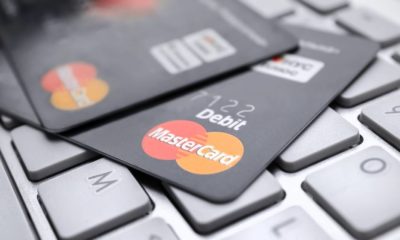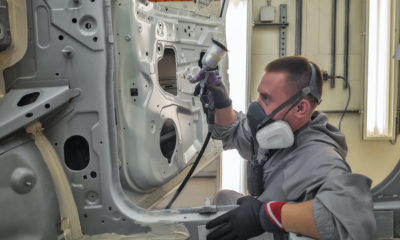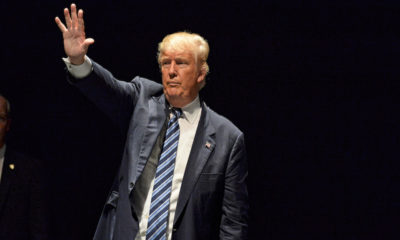Franchises
What Is The State of MasterCard and Consumer Debt During Trump Era

Previously known as Interbank Card Association, MasterCard is a group of banks. With Trump's economic policies and infrastructure spending, how will MasterCard's stock value fare? Read on to find out from Mr. Malcolm Berko.
MasterCard and Consumer Debt
Dear Mr. Berko:
My brother, who does well in the stock market, told me to buy 100 shares of MasterCard.
He thinks that President Donald Trump's economic policies and infrastructure spending will grow corporate earnings and give more people jobs and many people higher-paying jobs. He says that these people will spend their money rather than save it. We both believe that the American consumer is born to spend. Please advise. — JA, Indianapolis
Dear JA:
I think your brother is right as light!
Way back in 1966, before marijuana became legal in the Western states, a group of banks formed the InterBank Card Association. And in 1968, when the movie “Planet of the Apes” was released, this association changed its name to MasterCard. In 2006, Goldman Sachs, Citigroup and HSBC took MasterCard (MA-$178) public at $39 a share. And in December 2014, just before Russia annexed Crimea, MA had a 10-for-1 split.
Back in 2007, a stockbroker with whom I occasionally exchange ideas told me to buy MA, which was trading at $46 a share. I wasn't comfortable with his analysis. I was convinced that consumers had maxed out their personal debt (credit cards, small-loan companies, cars, student loans), because in 2007, they owed a record $10.6 trillion. And that year, the gross domestic product was $14.4 trillion. Those were staggering numbers, and I couldn't imagine that consumer debt would stagger higher. Well, it did stagger higher. Ten years later, consumer debt had risen to $13.8 trillion, a $3.2 trillion increase, while the GDP had risen to $19 trillion, an increase of $4.6 trillion. I figured that the fit had to hit the shan sooner or later. That 30 percent increase in consumer debt between 2007 and 2017, without an equal increase in consumer income, gave me agita.
I should have bought the darn stock! During the past 10 years, MA's revenues have grown by 350 percent. Cash flow has increased by 550 percent. Share earnings have boomed by 625 percent. And the dividend, though it's still cheeseparing, has grown from a nickel to a dollar a share. MA is a global leader in electronic payments and has become the processor, franchisor and adviser to over 25,000 financial institutions in support of their credit, debit and other payment plans. Today MA licenses or franchises its credit card brands (MasterCard, Maestro, Cirrus) to customers all over the planet, with the exception of North Korea. I'm told that Visa (V-$124.71) has a better chance of success in North Korea than MA.
This year, with the help of 12,000 mostly happy employees, MasterCard expects to increase revenues from $12.2 billion to $13.9 billion. That certainly ain't chopped liver. And with impressive net profit margins of 38.1 percent, management expects to report earnings in 2018 of $5.08 a share (up from $4.45 in 2017), with an increase in its miserly dividend to $1.10.
Too many American consumers are drunk on debt. And as long as they can make monthly payments, it appears that American consumers are still willing to take on more debt. Americans would own kangaroos as pets if they could be bought for $100 down and $50 a month. As employment continues to improve, as the economy continues to pick up steam, as corporate billions come in from overseas, as corporate America continues to improve earnings and grow dividends and as Trump's economic initiatives gain traction, consumers' borrowing appetite will push MA's revenues, earnings and dividends nicely higher during the coming four years. By 2021, MA's revenues could improve by 40 percent, to $18.5 billion. Earnings could improve by 43 percent, to $7.10 a share. And the dividend could run up 25 percent, to $1.27. And best of all, MA's net profit margins will probably improve to 40 percent.
However, since December 2015 — when MA was trading in only the mid-$80s — insiders, officers and directors have been selling the stock as the shares have been running up. I wonder why, because Credit Suisse, Argus Research, Market Edge, Zacks, KeyBank, Piper Jaffray, Morgan Stanley and others have “buy” rankings on MA.












1 Comment
the way of increasing appetite, it will bring back food from ……. traffic will improve your initiative probe